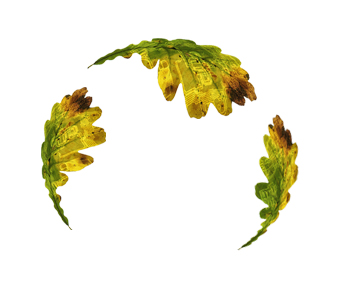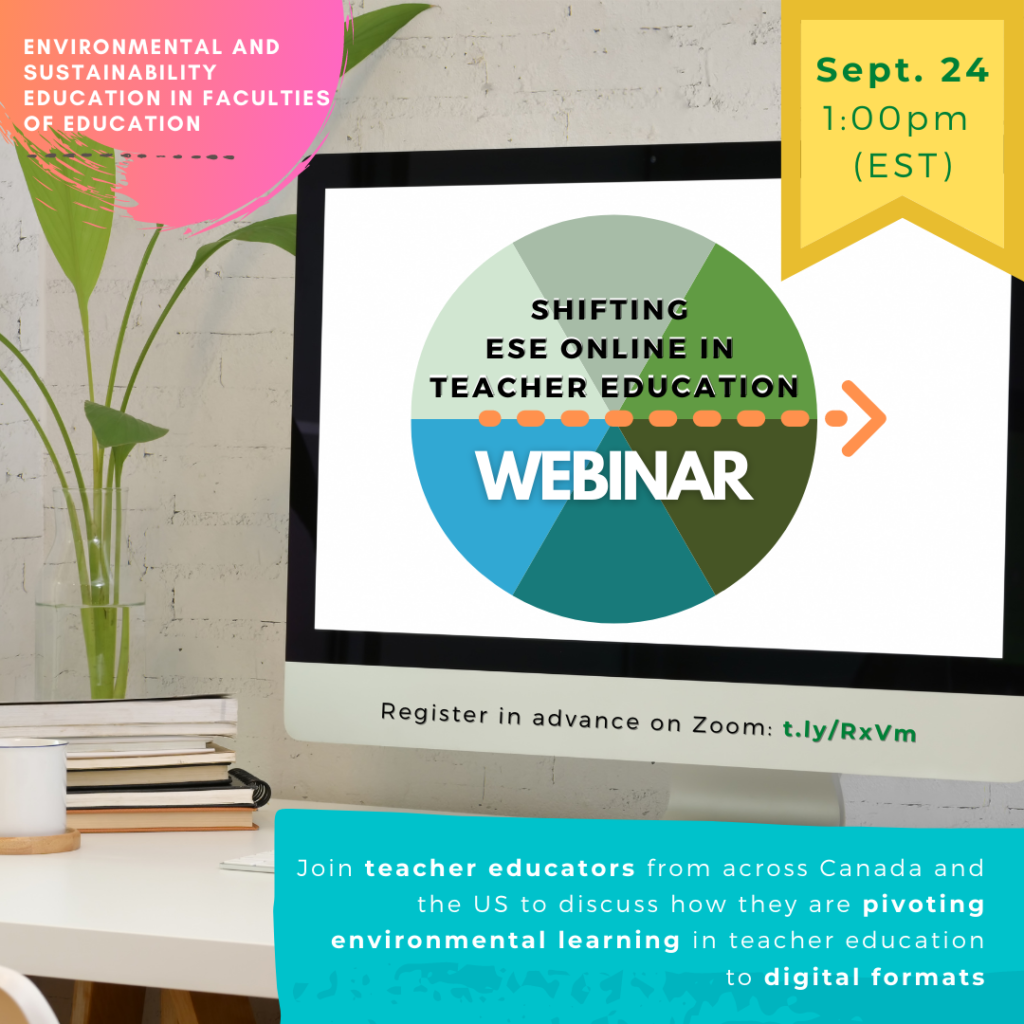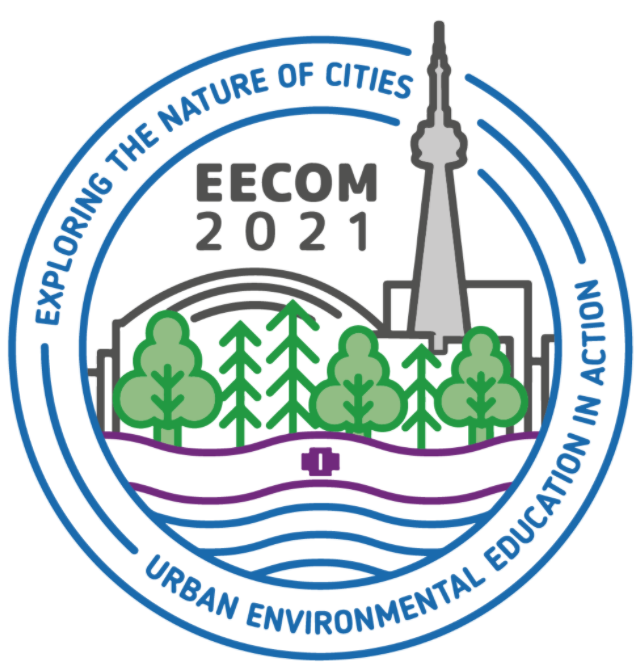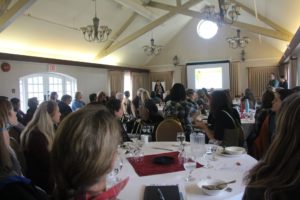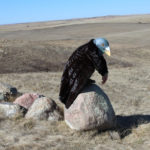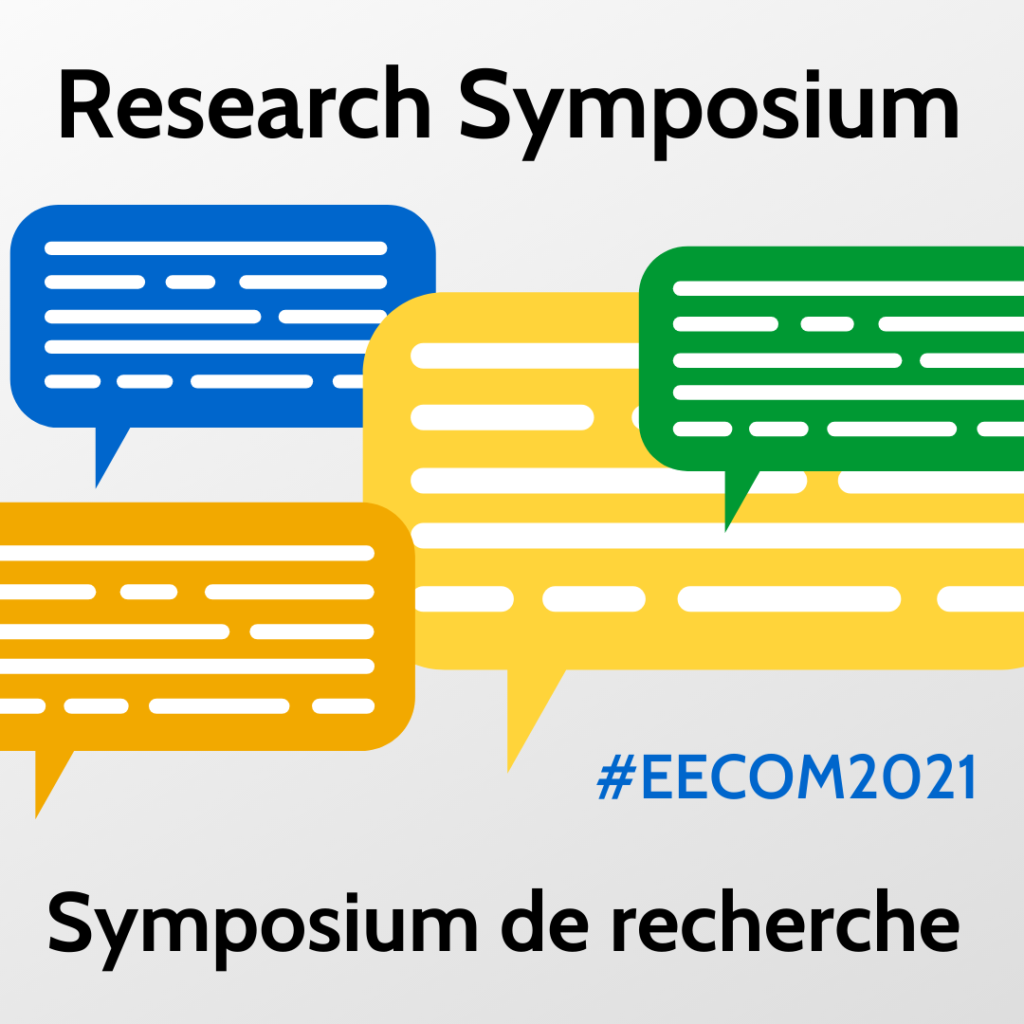
Environmental and Sustainability Education remains a critical challenge for faculties of education across Canada. The involvement of educators at all levels of education is imperative to help Canadians address the climate crisis and make cultural and societal shifts to more sustainable forms of living. Teacher educators are key actors in this, given their influence on the education and training of pre-service and in-service teachers.
A recent special issue of the Canadian Journal of Environmental Education (vol. 23, issue 1) features articles by Canadian teacher educators who are strengthening this developing field through innovative research and developing new practices. This issue was co-edited by Doug Karrow, Laura Sims and Hilary Inwood, members of EECOM’s Standing Committee on Environmental and Sustainability Education in Teacher Education.
This work will be further explored in a biennial Research Symposium on April 21, being offered on the opening day of EECOM’s upcoming conference. Please join us for the Research Symposium and conference – the first time these events have been offered online!
